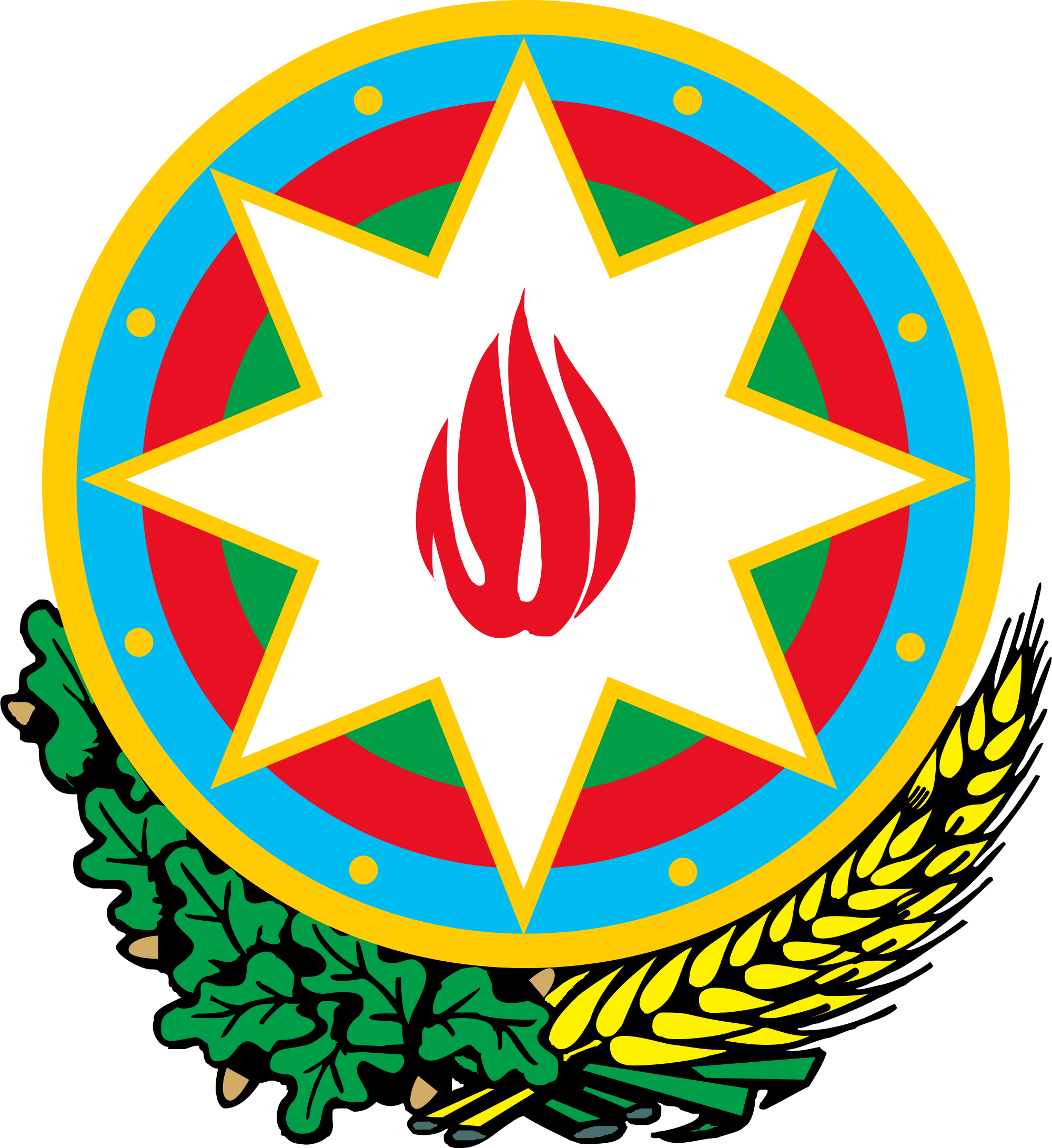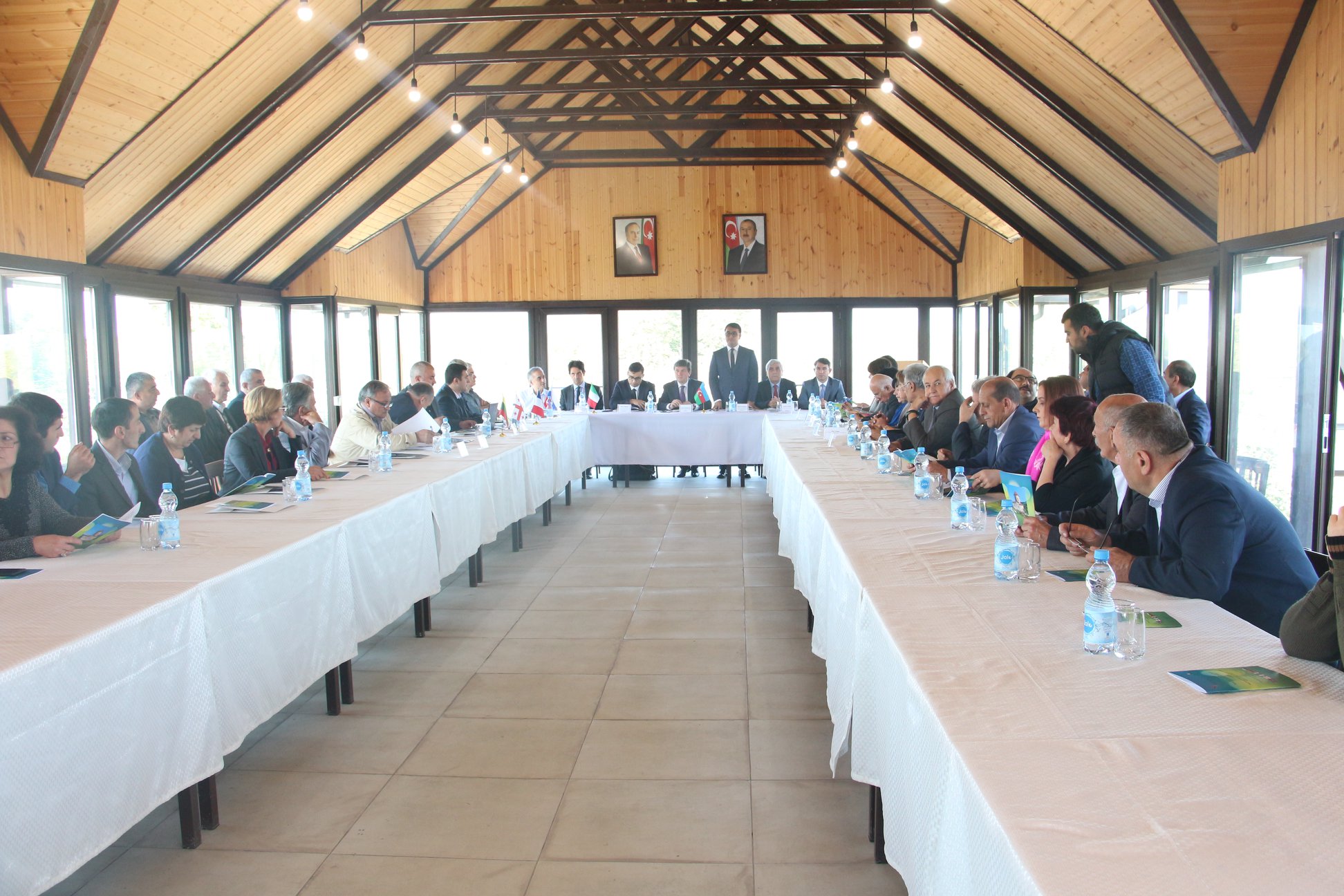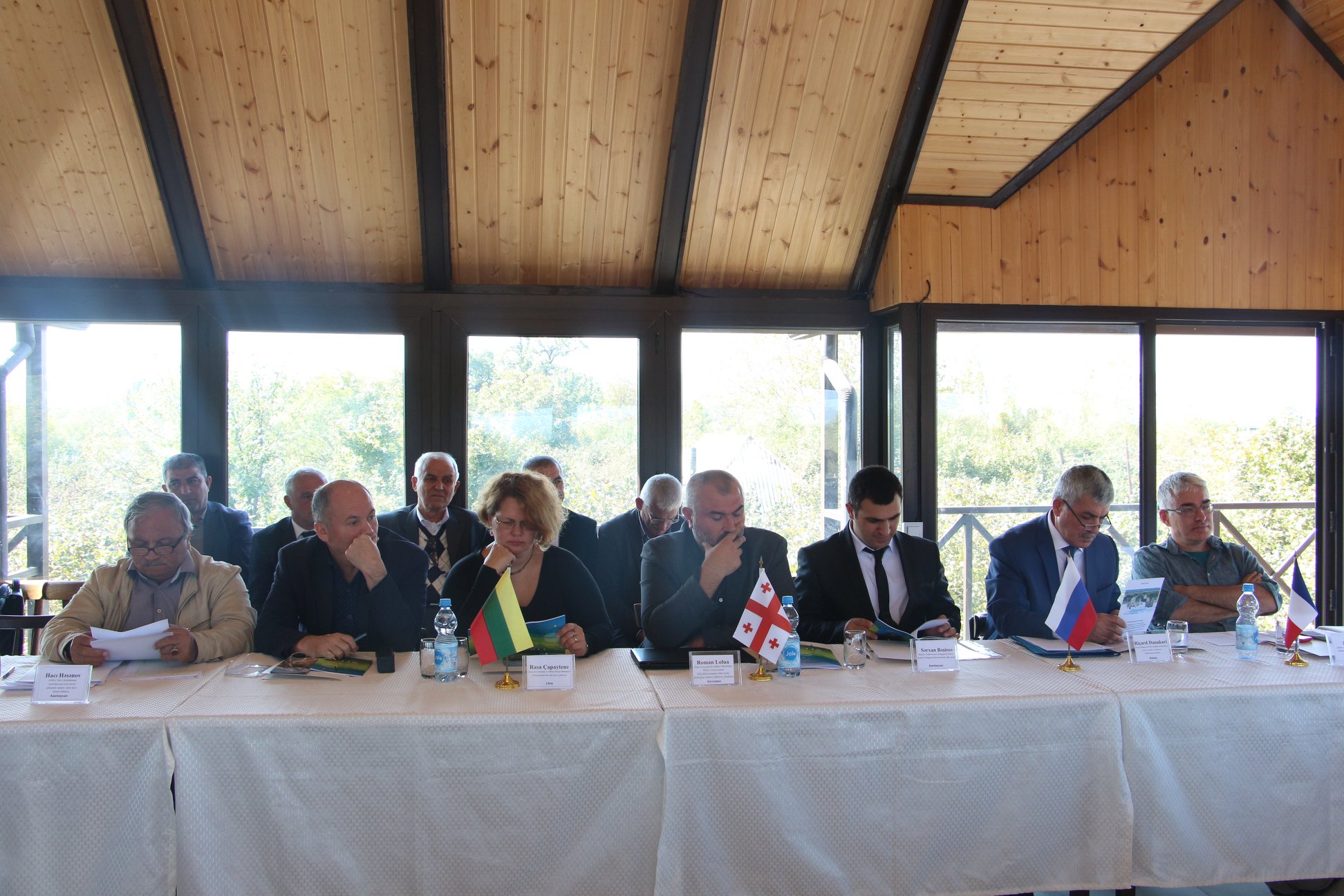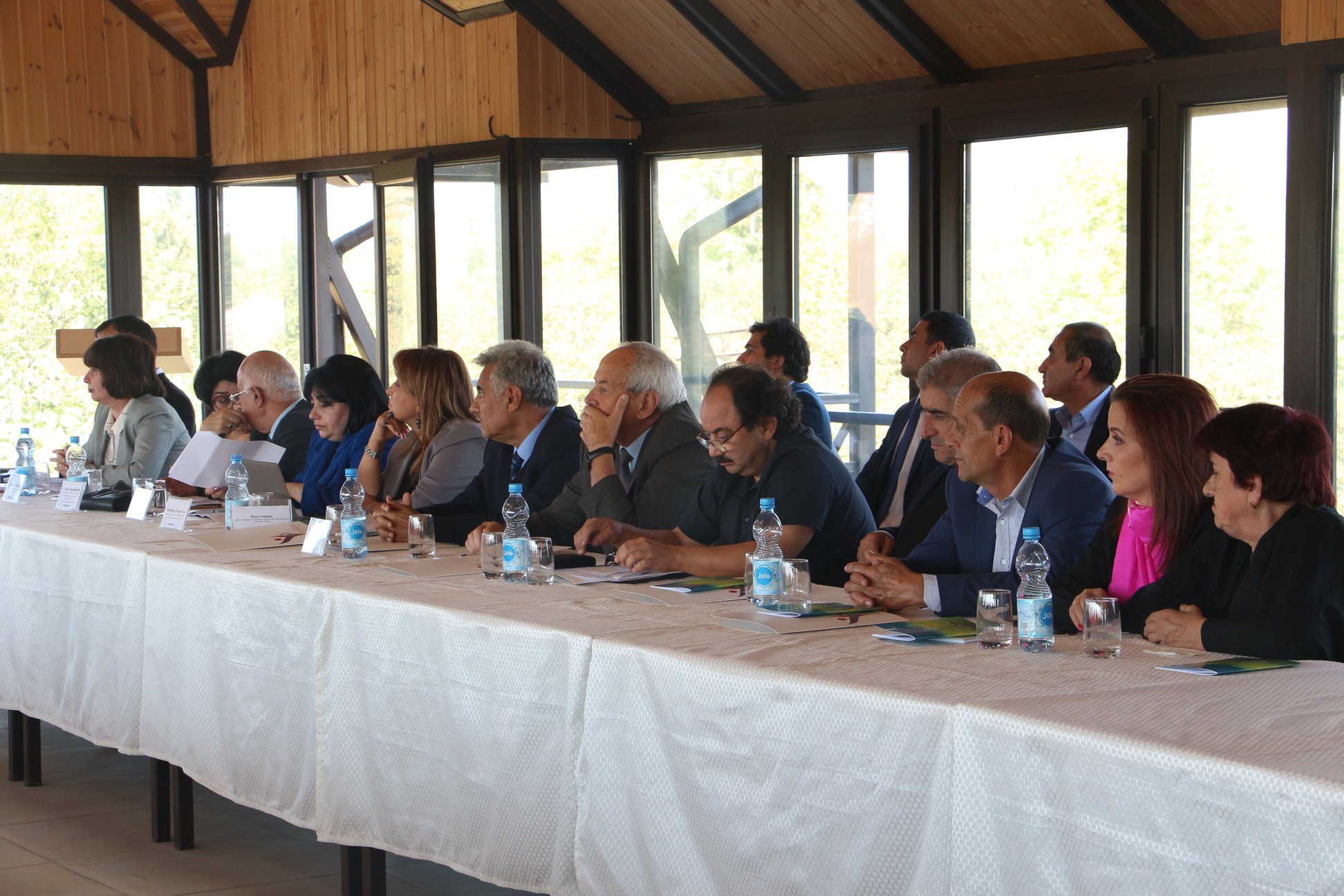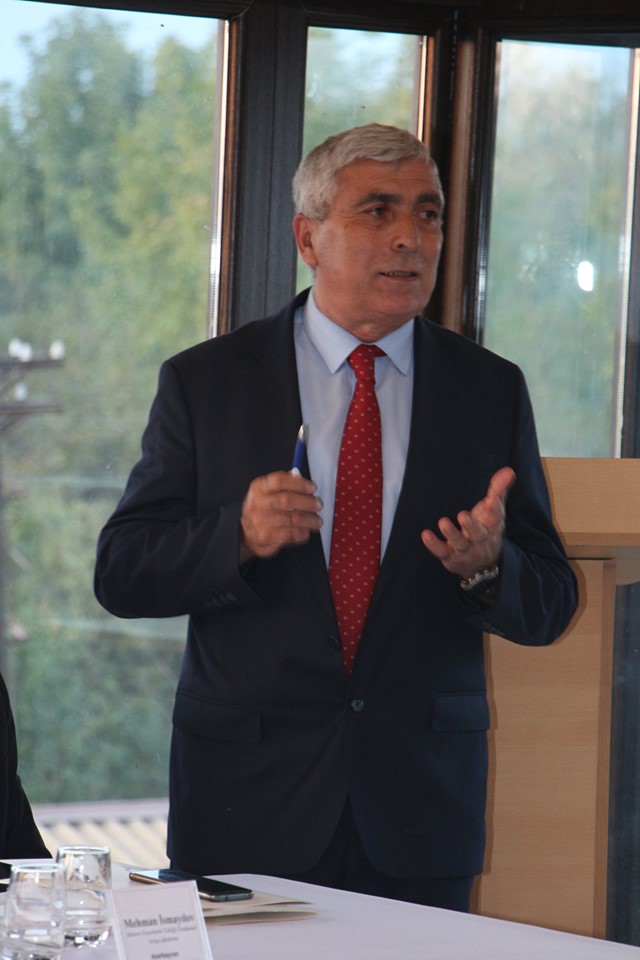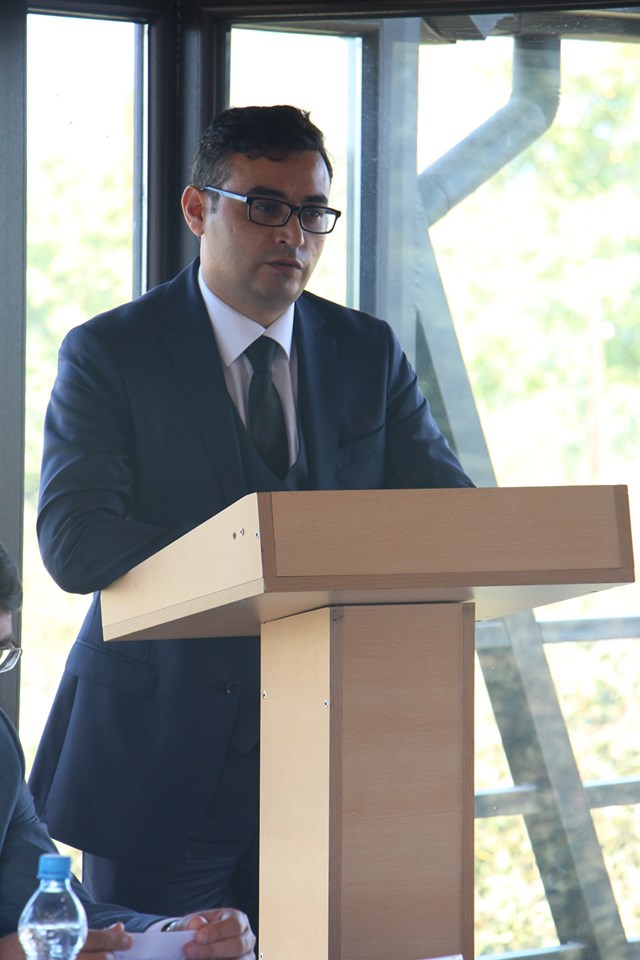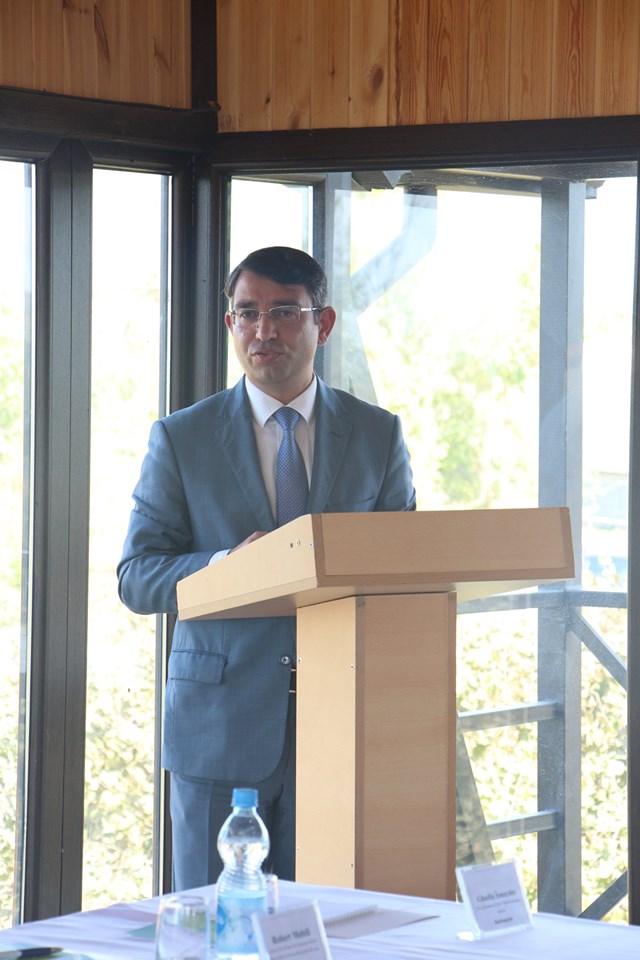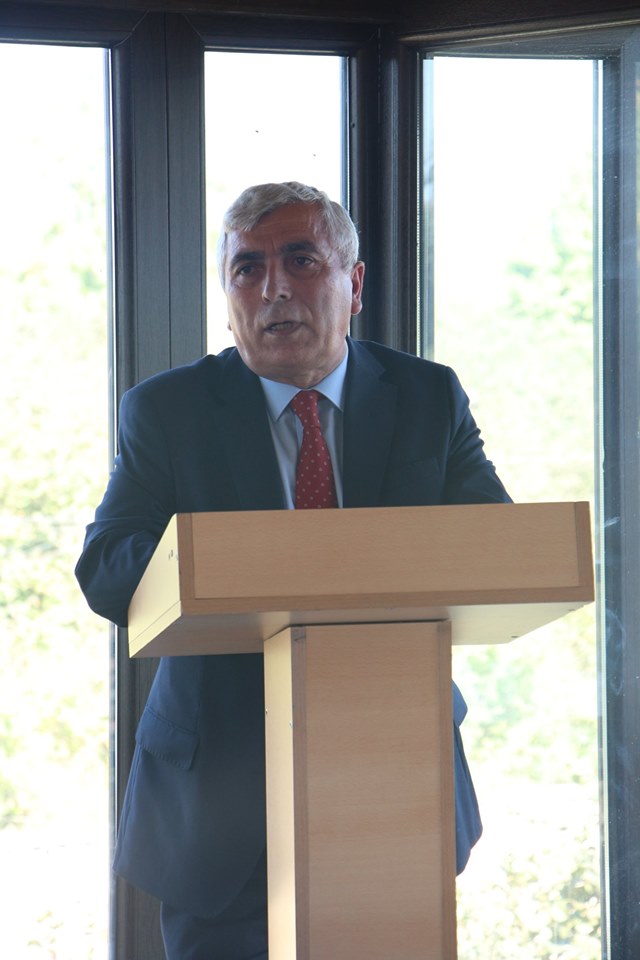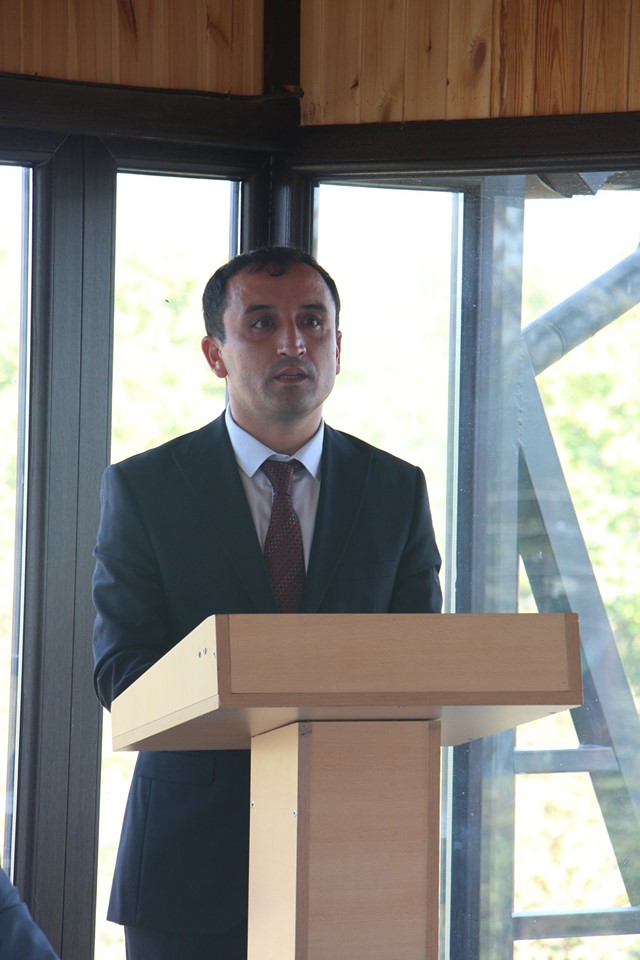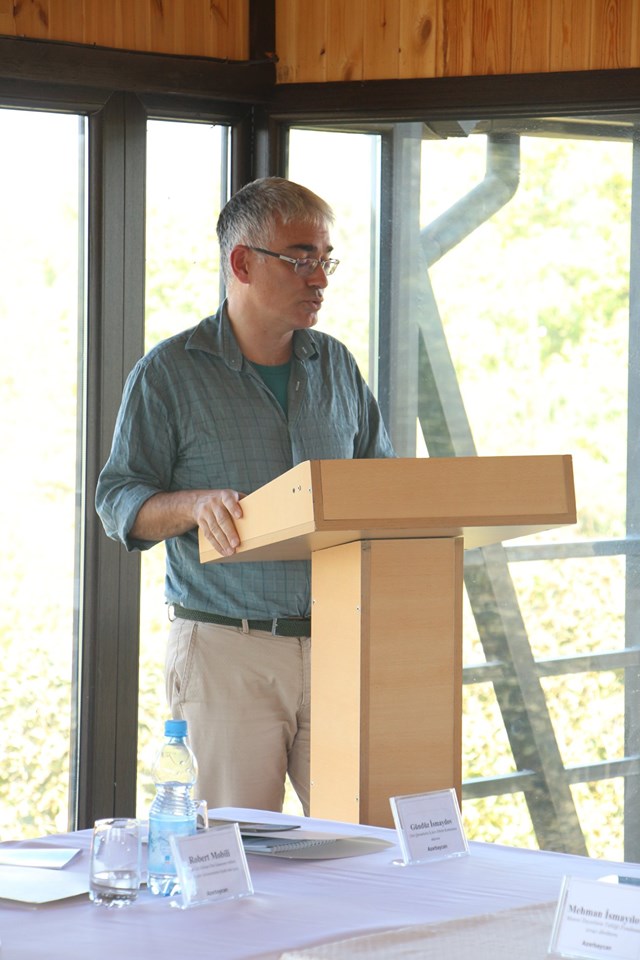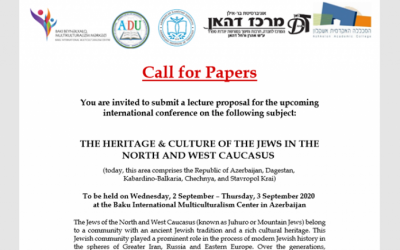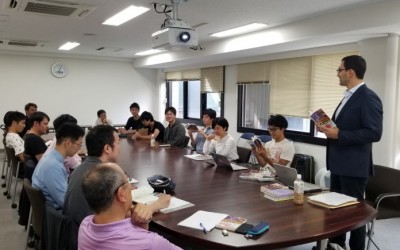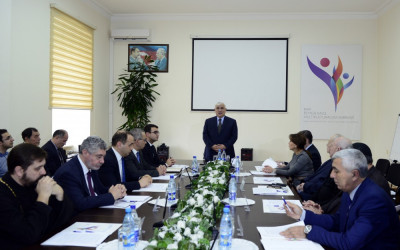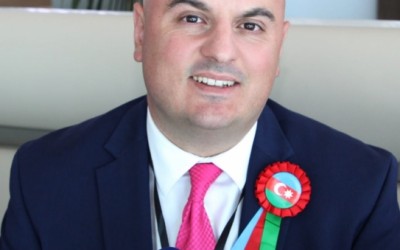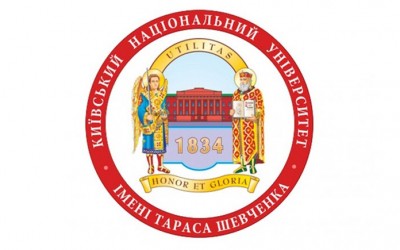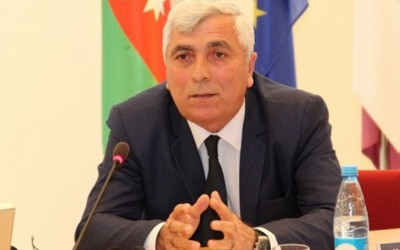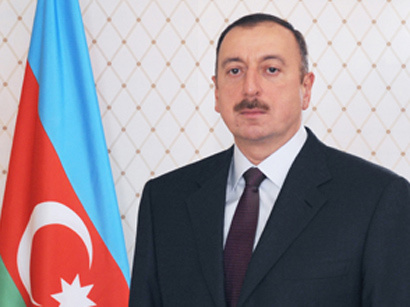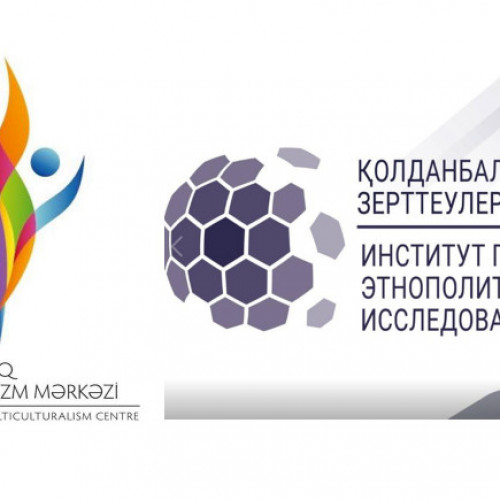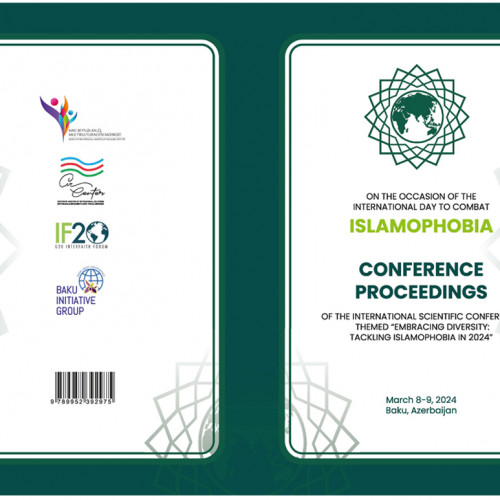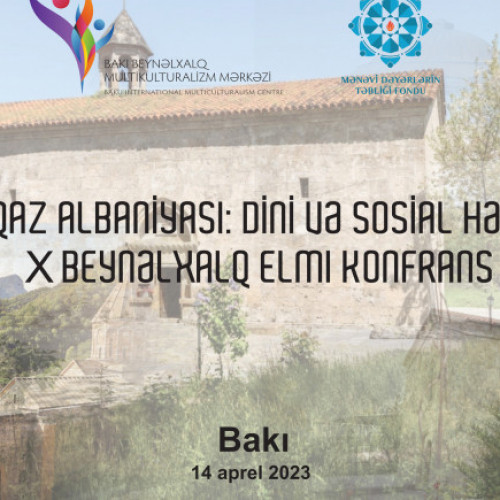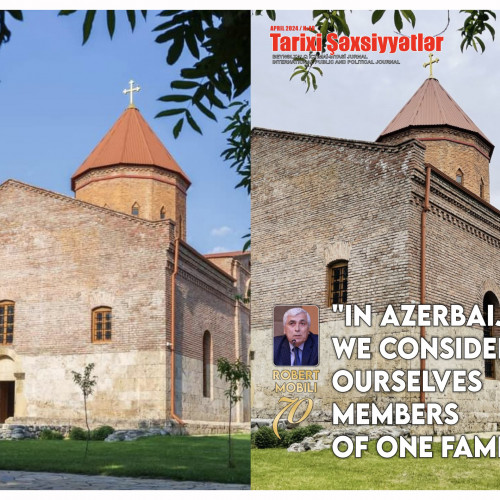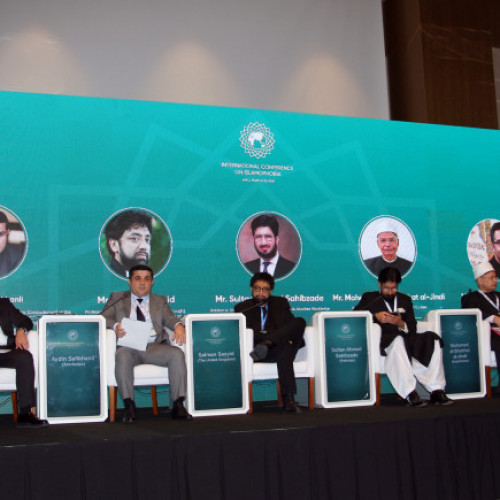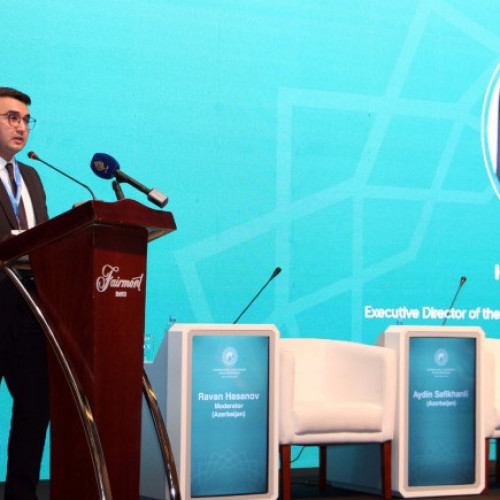An International Conference on the Topic “Caucasian Albania in a Historical and Modern Context” was Held in Gabala
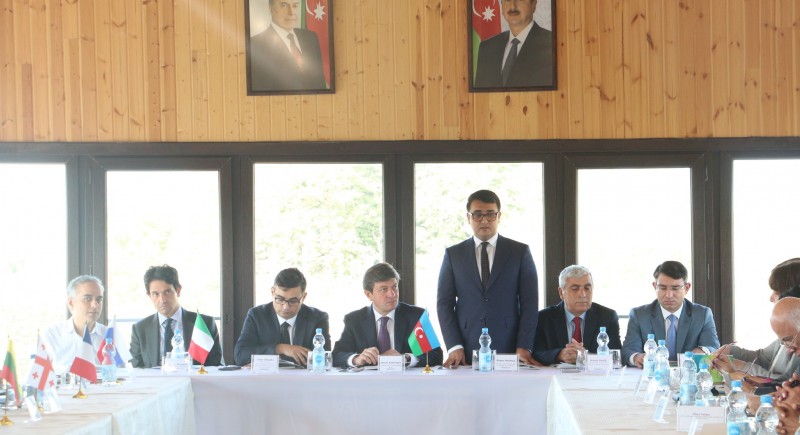
Gabala, October 11
For centuries, Azerbaijan has been a centre for the integration of various cultures and civilizations. Throughout history, representatives of various religions, cultures and ethnic groups have lived in this ancient land in the conditions of peace, fraternity and mutual respect. This millennia-forming atmosphere is still preserved in Azerbaijani society and our country is recognized as one of the main centres of multiculturalism in the world.
These ideas were expressed at the international conference “Caucasian Albania in a Historical and Contemporary Context” held on October 11 at the Albanian-Udi Centre in the Nij village of Gabala District.
The conference jointly organized by the Baku Multiculturalism International Centre, the Executive Power of the Gabala region, and the Albanian-Udi Christian religious community was attended by officials of the Presidential Administration of the Republic of Azerbaijan, the State Committee for Work with Religious Organizations (SCWRO), and the Fund for Propagation of Spiritual Values, the Ambassador of Italy in Azerbaijan Augusto Massari, as well as albanologists, historians, and intellectuals from Azerbaijan, Italy, France, Russia, Georgia, and Lithuania.
First, the conference participants have been familiarized with the conditions created in the Udi Centre.
Opening the conference, the Director of the Baku International Multiculturalism Centre (BIMC) Ravan Hasanov has stated that Caucasian Albania is the historical and cultural heritage of Azerbaijan and its integral part and that this issue always remains in the spotlight of the BIMC. The head of the organization emphasized the importance of intensifying work related to Caucasian Albania and said that the “Studying Caucasian Albania” project was one of the largest ones implemented by the BIMC in 2014-2019. Within this project, a series of conferences, round tables, scientific tours, and lectures were held both in the country and abroad, as well as books and brochures on this topic were published.
Ravan Hasanov emphasized that issues related to Caucasian Albania always remain in the spotlight of the head of our state: “In his recommendations, President Ilham Aliyev constantly puts forward an issue of detailed studying Caucasian Albania as the cultural heritage of Azerbaijan, the importance of successful propagation of this issue both in the country and abroad. This has a reasonable basis. Since there are forces and states striving to appropriate the cultural heritage of Caucasian Albania. However, the studies of our scientists, historians and the facts revealed are much more convincing and important than the words of politicians. When discussing this issue at a scientific level, everyone is forced to admit that Caucasian Albania is the historical and cultural heritage of Azerbaijan.
Speaking at the conference, the head of the Gabala region executive power Sabuhi Abdullayev said that conducting scientific discussions on Caucasian Albania in the Nij village is a vivid example of multicultural traditions, tolerance, and ties with historical roots in our country. Currently, about 4,000 people of more than 10,000 Udis live compactly in the Nij village and consider this land their eternal and inalterable homeland. Today, the international village of Nij where national minorities live has close ties with the Udi diaspora and the scientific community of several world countries. These contacts and relations stimulate the cultural development and progress of the Udis mentioned in many ancient sources, linking them even more strongly to historical roots.
Sabuhi Abdullayev noted that President Ilham Aliyev during his visit to Gabala had been in the Nij village where he met with the Udis, Azerbaijanis, Lezghins, and representatives of other nationalities living there. By the resolution of the head of state, important projects were implemented related to the improvement of the village and the solution of social problems. Thanks to the attention paid by our state to national minorities, the Albanian Jotari church was repaired and handed over to the Udis, two modern school buildings were built, a new park was arranged, a gas pipeline laid in the village, the Gabala-Nij highway reconstructed and the village’s main road paved.
Chairman of the Albanian-Udi Christian Religious Community Robert Mobili highly appreciated the importance of the conference and expressed gratitude to the organizers on behalf of the community members.
The leading adviser to the Department for Interethnic Relations, Multiculturalism and Religion of the Administration of the President of the Republic of Azerbaijan Anar Alizadeh emphasized that the event was dedicated to a very urgent, important and painful problem: “Armenian aggressors who raise unreasonable territorial claims against Azerbaijan are working on the destruction and appropriation of material and cultural monuments belonging to our people. Christian-Albanian churches left to us in memory of the era of Caucasian Albania are also among our material and cultural monuments, which have undergone to Armenian vandalism. The Armenians change the architectural structure of these monuments and temples, destroy the ancient gravestones and ancient inscriptions on them. Therefore, we are obliged to assert our rights to this rich heritage, to investigate and communicate the truth about this heritage to the world community.”
Deputy Chairman of the State Committee for Work with Religious Organizations Gunduz Ismayilov and Executive Director of the Fund for Propagation of Spiritual Values Mehman Ismayilov highly appreciated the importance of the international conference on Caucasian Albania and wished successful work to this event.
Then the international conference continued its work in panel sessions.
The first panel session moderated by the Senior Advisor on Political Documents Archives of the Administration of the President of the Republic of Azerbaijan, PhD in History, Professor Hajar Verdiyeva began with the moderator’s lecture on the topic “From the Perspective of Historical Truths: Arguments and Proofs”.
At the first panel session of the conference, reports were made by the Director of the Research Centre for Caucasian Languages and Philology, Professor Gilles Authier from France made a report on the topic “Personal and Demonstrative Pronouns in Udi, and Insights into Ancient Caucasian Albania Made on their Basis”, the Head of the Source and History Studies Department, the Baku State University, PhD. in History, Professor Anar Isgandarli on the topic "The Place of Caucasian Albanis Studies in the History of Azerbaijan", Leading Researcher at the Institute of Archeology and Ethnography of ANAS, PhD. in History Mahabbat Pashayeva on the topic “Ethnic Traditions of Ancient Albanian Tribes in Azerbaijan”, Professor of the History and Policy Theory Department, the Russian Volgograd Academy of Public Service Richard Danakari on the topic “Historical and Cultural Heritage of the Udis and Caucasian Albania: Social and Philosophical Aspects”, Senior Researcher at the Institute of Archeology and Ethnography of ANAS, PhD. in History Ulviyya Hajiyeva on the topic “Keshikchidagh – the Cave Temples of the Caucasus Albania Period”, and the Head of the Albanian-Udi Christian Religious Community, and Senior Researcher at the Baku State University Robert Mobili on the topic “The Albanian (Caucasian) Apostolic Autocephalous Church: History, Contemporaneity, and Perspectives”.
At the second panel session, reports by Senior Researcher at the Institute of Oriental Studies of ANAS, PhD. in History, Professor Solmaz Tohidi on the topic “The Name and Geographical Areas of Ancient Albania through the Eyes of Azerbaijani Historians”, Senior Researcher at the Lithuanian Institute of History and the Vilnius European Humanitarian University, Professor Rasa Chapaytene on the topic “Cultural Heritage in a Multicultural Society: Challenges and Opportunities”, the Head of the New History of Azerbaijan Department, the Institute of History of ANAS, PhD. in History Haji Hasanov on the topic “From the History of the Religious Policy of Tsarist Russia in Northern Azerbaijan in the First Half of the 19th Century”, as well as other thematic reports of historians who took part in the event were heard.

